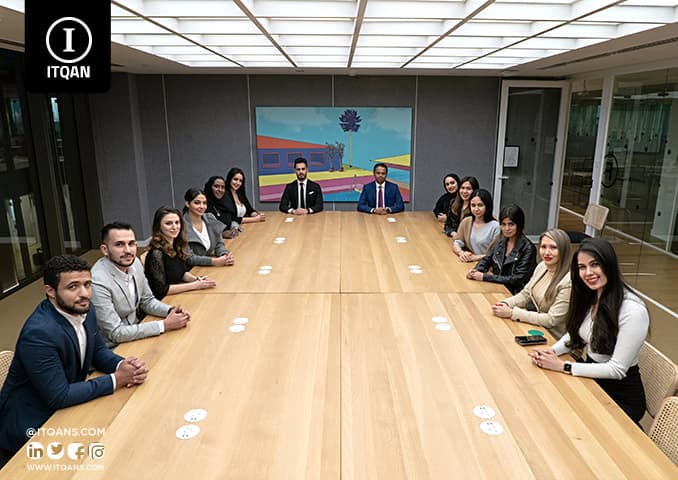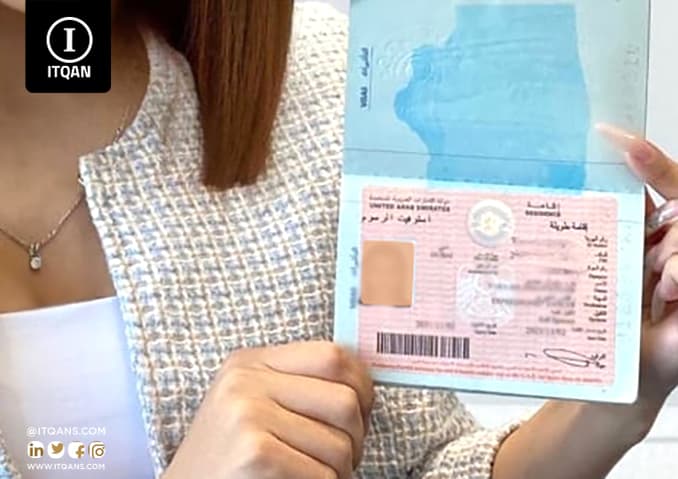Free zones are ideal options for investors seeking to establish their companies easily and effectively. Dubai is a gateway to global business, as free zones provide advanced infrastructure and a range of economic incentives that attract investors from around the world. In this article, we will take a look at how to establish a company in a free zone , starting with choosing the appropriate region and ending with obtaining the necessary licenses and starting business operations. We will also explore the strategic benefits of investing in free zones, and how to exploit cutting-edge infrastructure and global standards to achieve sustainable success in the global business market.

How to establish a company in the free zone
جدول المحتوى
ToggleFree zones available in Dubai
In Dubai, there are several free zones available for companies and investors wishing to establish and operate their businesses. These free zones are special zones that provide a favorable investment environment thanks to the government’s encouragement of domestic and foreign investment. Among the main free zones in Dubai:
- Dubai World Trade Center (DWTC): Located in the heart of Dubai, it provides integrated facilities for conferences and exhibitions, in addition to international office and commercial spaces.
- Dubai Investment Park (DIP): Provides an integrated industrial and logistics environment with spaces for warehouses, factories and administrative offices.
- Jebel Ali Free Zone (JAFZA): It is considered one of the largest free zones in the world, providing a variety of facilities for companies that include logistics services, manufacturing, and global trade.
- Dubai Investment District (Dubai Investment Authority – DIA): It is distinguished by providing specialized areas for technological and innovative companies in addition to financial and real estate services.
- Dubai Free Zone (DAFZA): Focuses on startups and SMEs and provides a flexible and supportive business environment.
Establishing a company in the Dubai Free Zone
Establishing a company in the Dubai Free Zone is an interesting option for investors seeking to take advantage of the flexible economic environment and readily available resources. Dubai’s free zones provide an ideal environment for startups and large companies alike, offering a range of competitive advantages such as tax exemptions, customs facilities, and advanced infrastructure, which enhances opportunities for growth and expansion.
To establish a company in the Dubai Free Zone, investors must follow specific procedures. First, investors must choose the appropriate free zone that suits their business activity and needs. After that, you must submit an application to establish the company and submit the required documents such as articles of incorporation, business plan, and passports for shareholders.
Once the conditions are met and the application is approved, the necessary licenses are granted to the company, allowing it to legally start business operations. Investors must also meet the required local financial and legal obligations, in addition to taking advantage of the advantages available in the free zone to achieve success and sustainability in the global business market.
How to establish a company in the free zone
To establish a company in a free zone in Dubai or any free zone in the Emirates, it requires following a series of legal and administrative steps and procedures. Here’s how to do it:
- Choosing a company type: You must first determine the appropriate company type for your business. The options can be such as a Limited Liability Company (LLC), a sole proprietorship or a subsidiary of a foreign company, depending on the requirements and objectives.
- Choose a location: Free zones in the UAE vary and offer different benefits, such as tax exemptions and customs facilities. You must choose the appropriate free zone that matches your business activity and specific requirements.
- Identifying a local partner (if required): In some cases, establishing a company in a free zone requires a specific percentage of a local partner. Be sure to check the local laws applicable in the free zone you choose.
- Preparing the necessary documents: The required documents must be prepared, such as legal contracts, personal documents of shareholders and directors, the business plan, and the necessary government approvals.
- Submitting the application and registration: Submit your application to establish the company to the Free Zone Authority, and pay the required fees for registration and licenses.
- Obtaining licenses and approvals: Once the application is submitted and fees are paid, the necessary documents and approvals will be reviewed by the relevant authorities. All licenses and approvals must be obtained before starting the business.
- Opening a bank account: After obtaining the operating license, open a bank account for the company to effectively manage financial matters and business transactions.
Types of companies that can be established in the free zone
In Dubai’s free zones, several types of companies can be established, which vary depending on the type of business activity and the needs of investors. Here are some of the main types of companies that can be established in free zones:
- Limited Liability Company – LLC: LLC is a popular company form that can be established in free zones, where shareholders enjoy limited financial protection that allows profits and losses to be presented at a specified percentage.
- Sole Proprietorship: Individuals can establish a sole proprietorship in some free zones, and it operates with full personal responsibility for the debts and obligations of the company.
- Partnership Company: Free zones provide the possibility of establishing partnerships between partners to manage and operate businesses by sharing risks and profits.
- Public Joint Stock Company (PJSC): It allows raising capital from the public through the sale of shares through the public market, and has strict regulatory laws.
- Private Joint Stock Company (PrJSC): It has the same organizational structure as a public joint stock company, but is restricted to a minimum number of shareholders.
- Branch of a Foreign Company: Foreign companies are allowed to open branches in free zones to carry out their activities under certain licenses and controls.
- Investment and specialized companies: These include investment, technology, financial services, logistical, industrial, commercial, and other companies, according to the free zone’s specialty and local regulations.
Approximate costs of establishing a company in a free zone
To establish a company in a free zone in Dubai, the approximate costs consist of several basic elements that include:
- Registration and licensing fees: vary according to the type of company and free zone, and include the costs of issuing licenses and commercial licenses.
- Legal and accounting consulting fees: You may need legal and accounting consulting to facilitate the incorporation process and comply with local laws.
- Contract and rental fees: If contracts are needed with employees or to rent an office or work space.
- Necessary capital: The amounts required depend on the type of company and the financing requirements needed to start business activities.
- Other government fees: These include administrative fees and other government services that may be required during the incorporation process.
Privileges enjoyed by companies in the free zone
Companies established in Dubai’s free zones enjoy a number of privileges and facilities that make them attractive to investors. Here are some key perks:
- Tax exemptions: Companies in free zones typically enjoy full or partial exemptions from taxes on profits, including income tax and corporate taxes, for certain periods of time.
- Customs facilities: Free zones allow goods to be stored and re-exported without paying customs duties, which facilitates commercial activity and reduces additional costs.
- Banking facilities: Free zones usually provide the ability to easily open bank accounts for companies, which facilitates the management of financial matters.
- Advanced infrastructure: Free zones provide advanced infrastructure including transportation, communications, and energy facilities, which helps companies operate with high efficiency.
- Simple establishment procedures: Free zones provide easy and simple establishment procedures, making it easier for investors to quickly start their businesses.
- Access to regional and global markets: Thanks to their strategic location, free zones allow companies to better access the Middle East, North Africa and global markets.
At the conclusion of this article, it can be said that the process of establishing a company in the Dubai Free Zone requires careful planning and careful implementation to obtain the necessary licenses and approvals. By choosing the appropriate free zone, submitting the required documents, and adhering to local conditions, investors can build a legal and sustainable business in Dubai.
By choosing to establish your company in the Dubai Free Zone , you are embarking on an investment journey full of opportunities and challenges in one of the most attractive areas for business in the world. Dubai’s free zones provide an ideal environment for startups, medium and large companies to benefit from a range of investment and regulatory advantages.
The most important frequently asked questions about establishing a company in the free zone
What are the necessary procedures to establish a company in the free zone?
Procedures include applying for a business license, submitting necessary documents such as company contracts and partner approvals, and determining the location within the free zone.
What are the financial requirements such as minimum capital required?
There may be minimum capital requirements depending on the type of company and business activity chosen.
What tax and customs privileges do companies in the free zone enjoy?
Concessions can include non-taxation of profits, imported and exported goods, value-added tax reductions, and other tax facilities.
What are the restrictions or conditions related to operating and transferring profits outside the free zone?
There may be restrictions on transferring capital or profits outside the free zone, and conditions specified by local authorities must be adhered to.
What additional services are available within the free zone?
Additional services available include logistics, finance, insurance, administrative support, and advanced infrastructure.

















